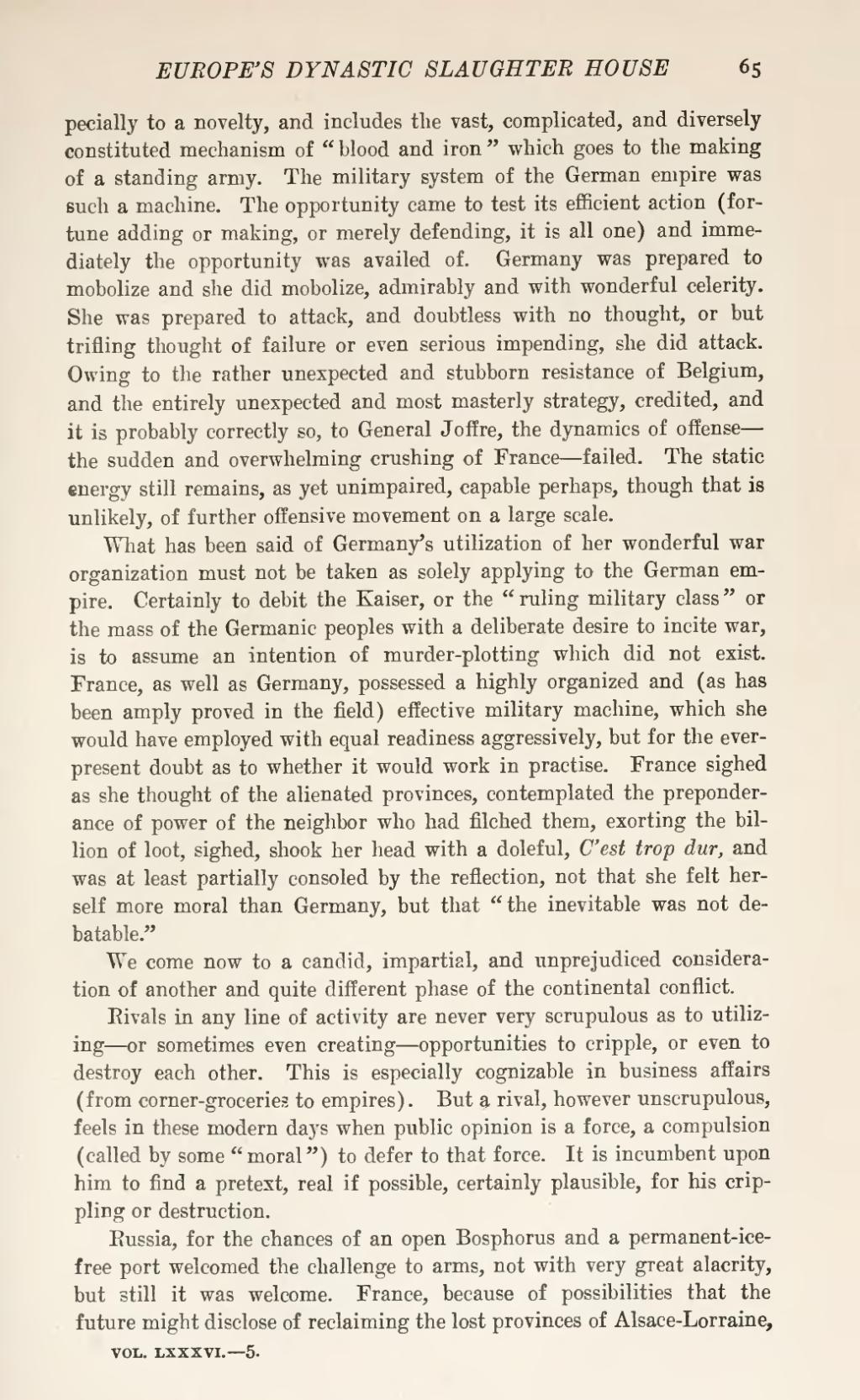pecially to a novelty, and includes the vast, complicated, and diversely constituted mechanism of “blood and iron” which goes to the making of a standing army. The military system of the German empire was such a machine. The opportunity came to test its efficient action (fortune adding or making, or merely defending, it is all one) and immediately the opportunity was availed of. Germany was prepared to mobolize and she did mobolize, admirably and with wonderful celerity. She was prepared to attack, and doubtless with no thought, or but trifling thought of failure or even serious impending, she did attack. Owing to the rather unexpected and stubborn resistance of Belgium, and the entirely unexpected and most masterly strategy, credited, and it is probably correctly so, to General Joffre, the dynamics of offense—the sudden and overwhelming crushing of France—failed. The static energy still remains, as yet unimpaired, capable perhaps, though that is unlikely, of further offensive movement on a large scale.
What has been said of Germany’s utilization of her wonderful war organization must not be taken as solely applying to the German empire. Certainly to debit the Kaiser, or the “ruling military class” or the mass of the Germanic peoples with a deliberate desire to incite war, is to assume an intention of murder-plotting which did not exist. France, as well as Germany, possessed a highly organized and (as has been amply proved in the field) effective military machine, which she would have employed with equal readiness aggressively, but for the ever-present doubt as to whether it would work in practise. France sighed as she thought of the alienated provinces, contemplated the preponderance of power of the neighbor who had filched them, exorting the billion of loot, sighed, shook her head with a doleful, C’est trop dur, and was at least partially consoled by the reflection, not that she felt herself more moral than Germany, but that “the inevitable was not debatable.”
We come now to a candid, impartial, and unprejudiced consideration of another and quite different phase of the continental conflict.
Rivals in any line of activity are never very scrupulous as to utilizing—or sometimes even creating—opportunities to cripple, or even to destroy each other. This is especially cognizable in business affairs (from corner-groceries to empires). But a rival, however unscrupulous, feels in these modern days when public opinion is a force, a compulsion (called by some “moral”) to defer to that force. It is incumbent upon him to find a pretext, real if possible, certainly plausible, for his crippling or destruction.
Russia, for the chances of an open Bosphorus and a permanent-ice-free port welcomed the challenge to arms, not with very great alacrity, but still it was welcome. France, because of possibilities that the future might disclose of reclaiming the lost provinces of Alsace-Lorraine,
